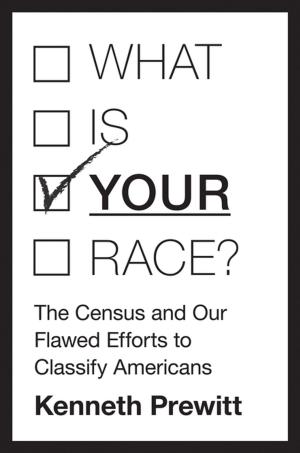How Policies Make Citizens
Senior Political Activism and the American Welfare State
Nonfiction, Social & Cultural Studies, Political Science, Politics, Social Security, Government, Public Policy| Author: | Andrea Louise Campbell | ISBN: | 9781400841318 |
| Publisher: | Princeton University Press | Publication: | October 16, 2011 |
| Imprint: | Princeton University Press | Language: | English |
| Author: | Andrea Louise Campbell |
| ISBN: | 9781400841318 |
| Publisher: | Princeton University Press |
| Publication: | October 16, 2011 |
| Imprint: | Princeton University Press |
| Language: | English |
Some groups participate in politics more than others. Why? And does it matter for policy outcomes? In this richly detailed and fluidly written book, Andrea Campbell argues that democratic participation and public policy powerfully reinforce each other. Through a case study of senior citizens in the United States and their political activity around Social Security, she shows how highly participatory groups get their policy preferences fulfilled, and how public policy itself helps create political inequality.
Using a wealth of unique survey and historical data, Campbell shows how the development of Social Security helped transform seniors from the most beleaguered to the most politically active age group. Thus empowered, seniors actively defend their programs from proposed threats, shaping policy outcomes. The participatory effects are strongest for low-income seniors, who are most dependent on Social Security. The program thus reduces political inequality within the senior population--a laudable effect--while increasing inequality between seniors and younger citizens.
A brief look across policies shows that program effects are not always positive. Welfare recipients are even less participatory than their modest socioeconomic backgrounds would imply, because of the demeaning and disenfranchising process of proving eligibility. Campbell concludes that program design profoundly shapes the nature of democratic citizenship. And proposed policies--such as Social Security privatization--must be evaluated for both their economic and political effects, because the very quality of democratic government is influenced by the kinds of policies it chooses.
Some groups participate in politics more than others. Why? And does it matter for policy outcomes? In this richly detailed and fluidly written book, Andrea Campbell argues that democratic participation and public policy powerfully reinforce each other. Through a case study of senior citizens in the United States and their political activity around Social Security, she shows how highly participatory groups get their policy preferences fulfilled, and how public policy itself helps create political inequality.
Using a wealth of unique survey and historical data, Campbell shows how the development of Social Security helped transform seniors from the most beleaguered to the most politically active age group. Thus empowered, seniors actively defend their programs from proposed threats, shaping policy outcomes. The participatory effects are strongest for low-income seniors, who are most dependent on Social Security. The program thus reduces political inequality within the senior population--a laudable effect--while increasing inequality between seniors and younger citizens.
A brief look across policies shows that program effects are not always positive. Welfare recipients are even less participatory than their modest socioeconomic backgrounds would imply, because of the demeaning and disenfranchising process of proving eligibility. Campbell concludes that program design profoundly shapes the nature of democratic citizenship. And proposed policies--such as Social Security privatization--must be evaluated for both their economic and political effects, because the very quality of democratic government is influenced by the kinds of policies it chooses.















